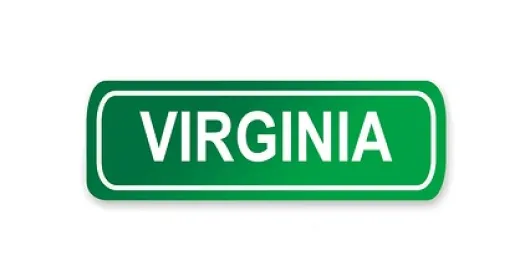Effective July 1, 2021, Virginia further expands the scope of the Virginia Human Rights Act (VHRA) to prohibit discrimination on the basis of disability. The state also enacted protections and benefits for domestic workers.
Disability Discrimination
With this expansion of the VHRA, employers will be required to make reasonable accommodation to the known physical and mental impairments of an otherwise qualified person with a disability, if necessary to assist such person in performing a particular job. An accommodation must be provided, unless an employer can demonstrate the accommodation would impose an undue hardship.
Virginia employers also will be prohibited from:
-
Taking any adverse action against an employee who requests or uses a reasonable accommodation;
-
Denying employment or promotion opportunities to an otherwise qualified applicant or employee because the employer will be required to make reasonable accommodation to the applicant or employee;
-
Requiring an employee to take leave if another reasonable accommodation can be provided to the known limitations related to the disability; and
-
Failing to engage in a timely, good faith interactive process with an employee who has requested an accommodation to determine if the requested accommodation is reasonable, and if such accommodation is determined not to be reasonable, discuss alternative accommodations that may be provided.
If a Virginia employer wants to deny an accommodation due to an undue hardship, the employer must consider:
-
Hardship on the conduct of the employer’s business, considering the nature of the employer’s operation, including composition and structure of the employer’s workforce;
-
Size of the facility where employment occurs;
-
Nature and costs of the accommodations needed, taking into account alternative sources of funding or technical assistance;
-
The possibility that the same accommodations may be used by another prospective employee; and
-
Safety and health considerations of the person with a disability.
Employers will be required to update employee handbooks to include information covering an employee’s right to reasonable accommodation for disabilities. Employers also will be required to comply with the poster and notice requirement. The posting should be in a conspicuous location on the work premises. In addition, employers must directly provide information about this law to new employees and any employee within 10 days of such employee providing notice to the employer that they have a disability.
By including disability discrimination in the VHRA, Virginia employees will be able to take advantage of the significantly expanded private right of action following the passage of the Virginia Values Act. Moreover, a court may award prevailing employees compensatory and punitive damages and (uncapped) reasonable attorney fees and costs, among other non-monetary relief. Employers with as few as five employees can be sued in Virginia state court for alleged VHRA violations.
Puzzlingly, this new law does not repeal the Virginians with Disabilities Act (VDA). Generally, the VDA is similar to the Americans with Disabilities Act, but it covers employers in Virginia with fewer than 15 employees.
New Domestic Worker Protections and Benefits
The Virginia General Assembly passed House Bill 2032 to extend employee protection laws to domestic service workers, allowing them to file complaints regarding workplace safety. Virginia’s Commission of Labor and Industry will investigate such complaints.
Domestic service is defined as “services related to the care of an individual in a private home or the maintenance of a private home or its premises, on a permanent or temporary basis, including services performed by individuals such as companions, cooks, waiters, butlers, maids, valets, and chauffeurs.”
This new legislation updates the definition of employer as “any person that (i) is engaged in business or engages an individual to perform domestic services and (ii) has employees.”
The new law also includes updated regulations for inspections of the workplace, permitting the commissioner to enter, without delay and at reasonable times, “any place where an individual is engaged to perform domestic service.”
Next
Virginia employers must be vigilant to ensure their policies and practices are up to date with the myriad of new workplace-related laws enacted in the Commonwealth. Since Governor Ralph Northam has taken office, Virginia has departed from its prior dormancy with respect to employment-related laws (for examples, see our articles, Virginia Enacts Overtime Wage Law and Virginia Enacts Wage Theft, Non-Compete Laws Amidst Flurry of New Employee Protections). Employers should ensure their workplace handbooks and related practices account for the many new and expanded rights and protections now available to that workforce that may not have existed the last time they were physically in the workplace before the COVID-19 pandemic took hold.





 />i
/>i
